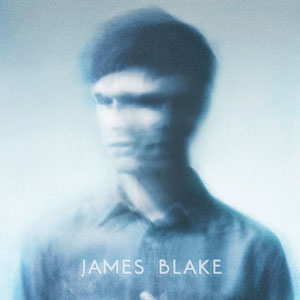James Blake James Blake
The buzz about James Blake has been building for well over a year via a […]

The buzz about James Blake has been building for well over a year via a series of well-received post-post-dubstep releases on au courant imprints Hemlock, Hessle Audio, and R&S. A professional association with Mount Kimbie, the experimental bass duo with whom he shares some noble qualities—a nerdy-but-cool bravura, pioneering spirit, and youthful ambition—has also aided in his ascent.
Hype for Blake’s self-titled debut full-length accelerated in late 2010 with the release of Blake’s cover of Feist’s “Limit to Your Love,” which charted briefly in the UK. Then, thanks largely to sympathetic critical attention for his initial creative spurt and a growing and increasingly devoted fan base, Blake finished second in the BBC Sound of 2011 poll. At 21, tags like “musical genius” were being tossed around before his career was able to fully set into a solid foundation. That’s not his fault, but pitching expectations too high seldom helps anyone in this business.
At first glance, instrumentally and in terms of its production values, James Blake (the LP) sounds not unlike the James Blake we’ve come to expect. The quirky time signatures that take their cues from urban sources (hip-hop and grime) remain. Chopped-up rhythms and the occasional fat synth twist and tease, before disappearing and leaving only Blake’s voice to bear the weight. It’s a risky decision to develop the project essentially as a cycle of ballads, re-branding the artist as a personality rather than a producer.
That’s a tough sell—a trap, really—one that more seasoned bass artists like Kode9 and Shackleton wisely avoid at all costs. With some music, the fewer windows into the soul, the better. The self can stand in the way of expressing the art, and so it does here.
Having said that, Blake’s voice, which on earlier recordings was smartly cut, edited, and altered with cleverly rendered effects, has impressive range. Other reviewers evoke names like David Sylvian, Antony Hegarty, and Jamie Lidell, and they’re not far off. Let’s add another: Mark Hollis, the former Talk Talk vocalist whose somber 1998 self-titled LP was a brilliant final statement of withdrawal from the fast lane of 1980s synth-pop.
But Blake’s voice and poetry strain to take us anywhere we haven’t already been with more experienced inner-space travelers at the helm. Furthermore, his music has become inexplicably ponderous and static, at times seeming to stop dead in its tracks and not move forward at all.
The saving graces are few. Blake takes what was, to borrow a cutting phrase from Julian Cope, “MOR slop,” and re-makes “Limit to Your Love” into a dark, dirge-like melodrama that seems to fit him hand in glove. He gives it a slow swing using stark piano, some bass wobble and hum, and a funereal drum beat. It’s edgy and good. On “I Mind,” Blake sneaks in tropical bass and drum patterns that help turn a moribund mood at the song’s beginning into a near-celebration as it begins to fade.
“Measurements” and “Unluck” more than hint at Blake’s interest in gospel and soul, though there is something missing here, too. Call it authenticity, or real passion. Call it out for what it is: The kind of genuine detail that is nailed in hundreds of African-American churches every Sunday.
The best track is the haunting “The Wilhelm Scream,” which features Blake at his lyrical best: “I don’t know about my dreams/I don’t know about my love/All that I know is that I’m fallin, fallin, fallin, fallin.” It’s also got a sonic charge to it that fails to materialize on any other song on the LP, giving us that physical and emotional kick in the head we’ve wanted all along.
Listen to James Blake in full here.

